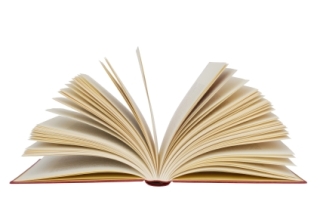Publishing Contracts & What To Expect From Your Publisher
 Answers to physician publishing questions.
Answers to physician publishing questions.
In a previous blog post, 5 Reasons Your Book Isn't Published Yet (And The Cure For Each), Arlen had asked about negotiating points in a publishing contract, as well as what publishers are responsible for and what they expect their authors to do. It seemed a big enough group of questions (he had 10) to warrant a separate post. I'll get us started with Arlen's questions and feel free to add your own as a comment.
I will say, as a book coach, I almost always recommend authors sign with a reputable literary agent rather than negotiate their contracts themselves. Even when you're signing with a small publisher, the advantages of having a qualified agent far outweigh the cost (typically 15% of your royalties, but can often be negotiated to 10% if you already have a publisher and they are just negotiating the contract).
Here are answers to the questions about some of the main negotiating points:
Royalties: While a typical royalty percentage is 10%, I have recently seen several authors earning and even 20% in unusual cases.
Royalties are typically paid quarterly and authors should receive quarterly reports. If you have an agent, your royalty is actually paid to the agent, who then pays you.
Copies of the book: Publishers tend to provide from 20-100 free copies of the book to the author. This is often an item that can be negotiated, especially if you have a solid marketing/pr plan for additional copies. Authors can usually buy additional copies at a discounted price.
Due dates and turnaround times: I've also seen agents negotiate dates that chapters are due or turnaround time for revisions.
And here are my answers to questions about what a publisher will do and what they expect from the author:
What tasks are the author's responsibility and what will the publisher do in terms of rights and permissions? In my experiences, the author would be responsible to get permissions, waivers and copyright releases. One of my clients had to pay to use the lyrics to a song. He hired an attorney to find out who owned the rights and make arrangements (he did not have a literary agent).
Design and art: Generally, the publisher provides graphics, art and layout. However, there are times that an author may provide a cover design--one of my recent clients liked an image and suggested it to his publisher who accepted it. The publisher often shows from 1-3 different cover designs and gets the author's (and agent's) input. However, the publisher almost always has the right to final decisions on cover and title.
Marketing and promotion: Generally, as an author, you are expected to market and promote your book. The publisher may pitch your book to the media along with other books, during meetings with national producers, but the lion's share of publicity is yours to develop and implement. This is a really critical point. If you are writing a book proposal for a trade book, be sure to include a robust promotion plan (that includes online promotion) and demonstrate that you have a following and/or reach a good-sized segment of your audience (we call this author platform in the industry).
Pricing: This is determined by the publisher.
And, to answer Arlen's last question, if only a few books sell, your publisher may sell the books at a discount to resellers. Sometimes you can negotiate to buy back the rights to your book.
Arlen, thanks for these great questions. Let's hear from other authors about your experiences with publishing contracts and responsibilities. And do post additional questions here, too.
 Email This Article tagged:
Email This Article tagged:  Freelance MD Authors,
Freelance MD Authors,  Medical Writing,
Medical Writing,  Physician Book Publishing,
Physician Book Publishing,  Physician Publishers |
Physician Publishers |  Dec 21, 4:00 PM
Dec 21, 4:00 PM 




